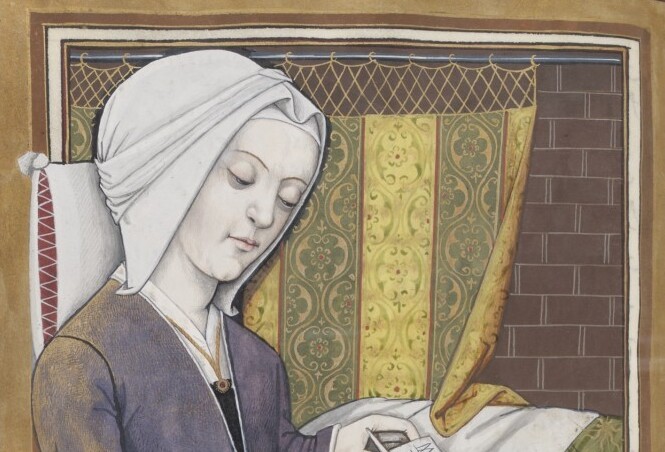
(Year C). It is well for me that I praise you, God, all ways for your noble goodness, that you have chosen me for your holy service. Sanctify my heart and mind, that I might receive all your gifts with holy inwardness and might remain with you in joy. It is well for me to thank you, imperial Son of God. I shall thank you always that you took me, in the world, out of the world. Your holy pain that you suffered for my sake is mine. All that I ever suffer I want to give to you in return. Even though this is an unequal bargain, it nevertheless makes my soul free. Keep me always in your favor, so that you may be praised forever. Jesus, my dearly Beloved, loosen my bonds; let me remain with you. It is well for me to thank you, Holy Spirit. It is my belief that you are one Person of the Holy Trinity. Your sweet loving spring waters erase all the suffering of my heart, for they come forth softly out of the Holy Trinity. I beg you, Lord Holy Spirit, to protect me from all malice of the evil spirits with your divine love, so that they not find in me what they are seeking. I, lacking all virtues; I, fragile in my being; if I dare or can, then I shall greet the sublimity, the splendor, the bliss, the wisdom, the nobility, and the wondrous oneness of the Holy Trinity. Out of it has flowed forth immaculate all that was, that is, that ever shall be. There I must one day enter again. How shall that happen? I must crawl back, for I am sinful. I must make amends with good works. I must hurry with faithful diligence. I must fly with the feathers of doves-these are virtues and goodness and a holy frame of mind. I must soar in all things above myself. When I am utterly spent, then I shall enter. How I shall then be received-never has a human eye beheld such a sight; never has a human ear heard it; never could a human tongue describe it. Glory to you, Trinity! (The Flowing Light of the Godhead)
Musical Selection
My life flows on in endless song,
above earth’s lamentation.
I catch the sweet, though far-off hymn
that hails a new creation.
No storm can shake my inmost calm
while to that Rock I’m clinging.
Since Love is lord of heav’n and earth,
how can I keep from singing?
Through all the tumult and the strife,
I hear that music ringing.
It finds an echo in my soul.
How can I keep from singing?
What though my joys and comforts die,
I know my Savior liveth.
What though the darkness gather round?
Songs in the night he giveth.
The peace of Christ makes fresh my heart,
a fountain ever springing!
All things are mine since I am his!
How can I keep from singing?
Collect
Draw near to the souls of your people, O God, that like your
servant Mechthild we may yearn to know you ever more, just as we
are known intimately by you, who knows each one of us better than
we can know ourselves. All this we ask through Jesus Christ our
Lord, who lives and reigns with you and the Holy Spirit, God now
and for ever. Amen. (ECUSA)